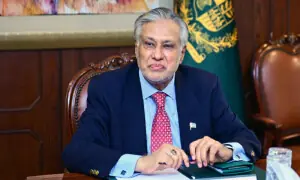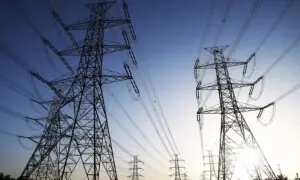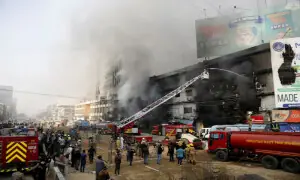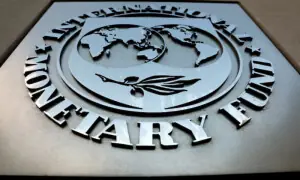Explainer: Why delaying elections until October matters so much
4 min readThe Election Commission of Pakistan has postponed the Punjab election over five months until October 8.
The ruling coalition under the PML-N hemorrhages popularity with each passing day as inflation and terrorist threats nip at its heels. So, a delay in the elections should theoretically benefit its rival, the PTI, but it is protesting against it.
This is because the October date has great political significance.
The new election date falls on the other side of a key marker on Pakistan’s political calendar. In September this year, two crucial variables will change.
President Dr Arif Alvi completes his five-year term on September 9, 2023, barely a week before Chief Justice of Pakistan Justice Umar Ata Bandial achieves superannuation and leaves the Supreme Court of Pakistan on September 16.
Justice Qazi Faez Isa will be sworn in as chief justice of Pakistan on September 17.
Both Justice Bandial and President Alvi offer hope to the PTI, which alienated the country’s powerful military establishment in October 2021.
While we know for certain that Justice Bandial is leaving, there is some ambiguity about the president.
Provincial assemblies along with Parliament form the electorate for the election of the president. Since two assemblies, KP and Punjab, remain dissolved, the election for the president could be delayed and if that happens Alvi stays in office until his successor is elected.
But with the government’s tendency to bend the law, we need to see how things play out around September 2023.
Why is a president important in Pakistan?
Although the president is a titular head of state under the Constitution of Pakistan, the office of the president performs certain functions that can alter the course of political events in the country.
For example, the government cannot initiate legal proceedings to remove a judge or the heads of constitutional organizations (such as NAB or the ECP) unless the president signs the reference.
The government cannot issue ordinances without presidential consent. Ordinances help governments quickly change laws and rules to deal with economic or security emergencies. President Alvi refused to sign an ordinance last month when the government decided to impose new taxes. The government had to pass a bill in parliament to make do.
The president also has the authority to grant a pardon to a political leader if the government wins a prosecution in court.
The office serves as a bridge between the government and the judiciary.
In May 2022, the PML-N was ousted from power when the Supreme Court ruled on a presidential reference seeking a reinterpretation of the disqualification clauses in the Constitution. Many experts believe the (re)interpretation offered by the court amounted to a re-writing of the constitution. PML-N’s Hamza Shahbaz lost the election for chief minister because the new interpretation changed the outcome of the vote count.
Such an interpretation would not have been possible if the president had not sent the reference to the Supreme Court of Pakistan. Of course, Alvi cannot move a reference without government approval, but the entire episode underscores the significance of his office.
Why does the PTI sees a beacon of hope in CJP Bandial
Justice Umar Ata Bandial headed the five-member bench that ruled against the PTI move to block a no-trust vote in Parliament using a Speaker’s ruling in April 2022.
The court verdict eventually led to Khan’s ouster after he lost the trust vote.
However, many other judgments from the court since then have favoured the PTI, including the one passed early this month. The top court ordered the ECP to hold Punjab and KP elections within 90 days, counting from the day the provincial assemblies were dissolved.
The PTI has expressed trust in CJP Bandial on numerous occasions. It does not sound as comfortable about his successor Justice Qazi Faez Isa, and there is a reason for that.
In 2019, the PTI filed a presidential reference against Justice Isa, seeking his removal through the Supreme Judicial Council (SJC). This coincided with a social media campaign against the judge and his family.
The reference was thrown out by the SJC and on April 14, less than a week after being ousted from power, Imran Khan admitted that filing the reference was a “mistake.”
There have been no indications from Justice Isa that this history may have a bearing on his work. Still, he has not been included on most of the apex court benches that heard key political cases in the past 11 months.
The PMLN-led government, on the other hand, has raised questions about CJP Bandial’s choice of judges when it comes to constituting a bench on political cases.
This may change when Justice Faez Isa becomes the top judge because the formation of SC benches is the sole prerogative of the CJP.
What happens after September?
With both Arif Alvi and Justice Bandial leaving the picture, the PTI will lose whatever legal cover it enjoys today.
This means it cannot expect election disputes to be settled in its favour.
There is a possibility that the judiciary may assume a limited role under the new chief justice.
It is also expected that the new era will usher in judicial reforms. Nothing could be predicted with any amount of certainty.
But a lot will be different for sure.
This article was originally published on March 23, 2023.
For the latest news, follow us on Twitter @Aaj_Urdu. We are also on Facebook, Instagram and YouTube.


























Comments are closed on this story.